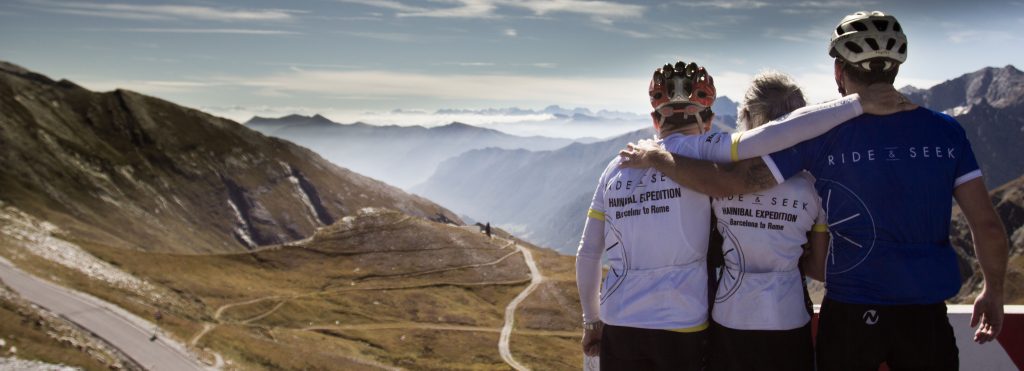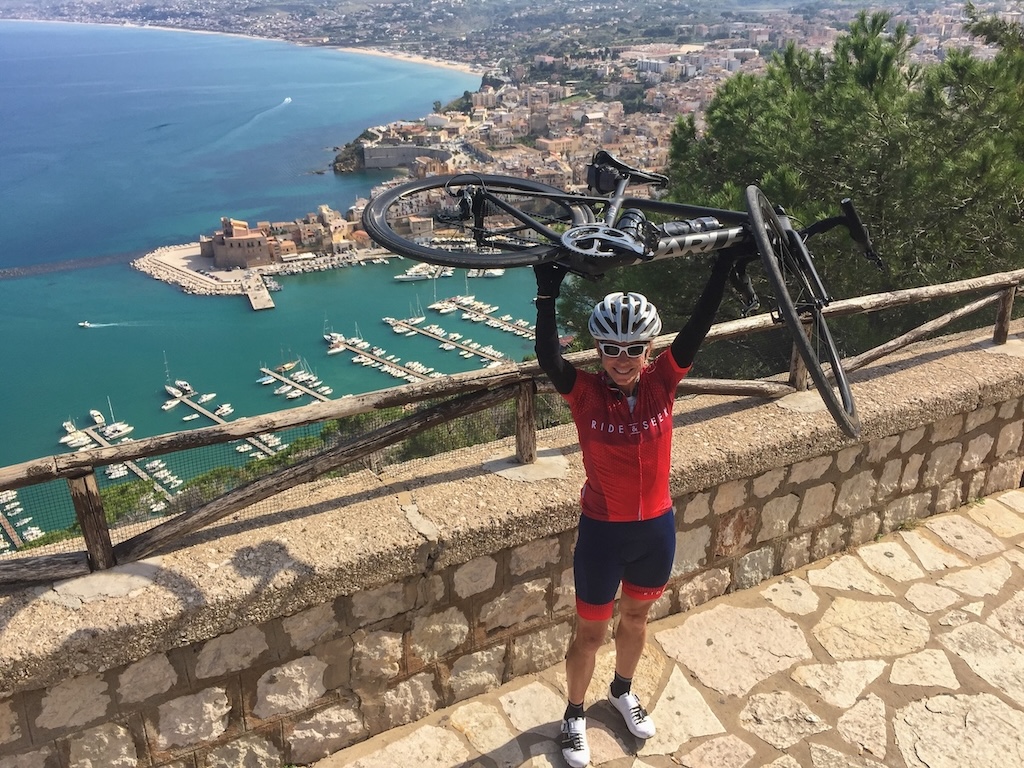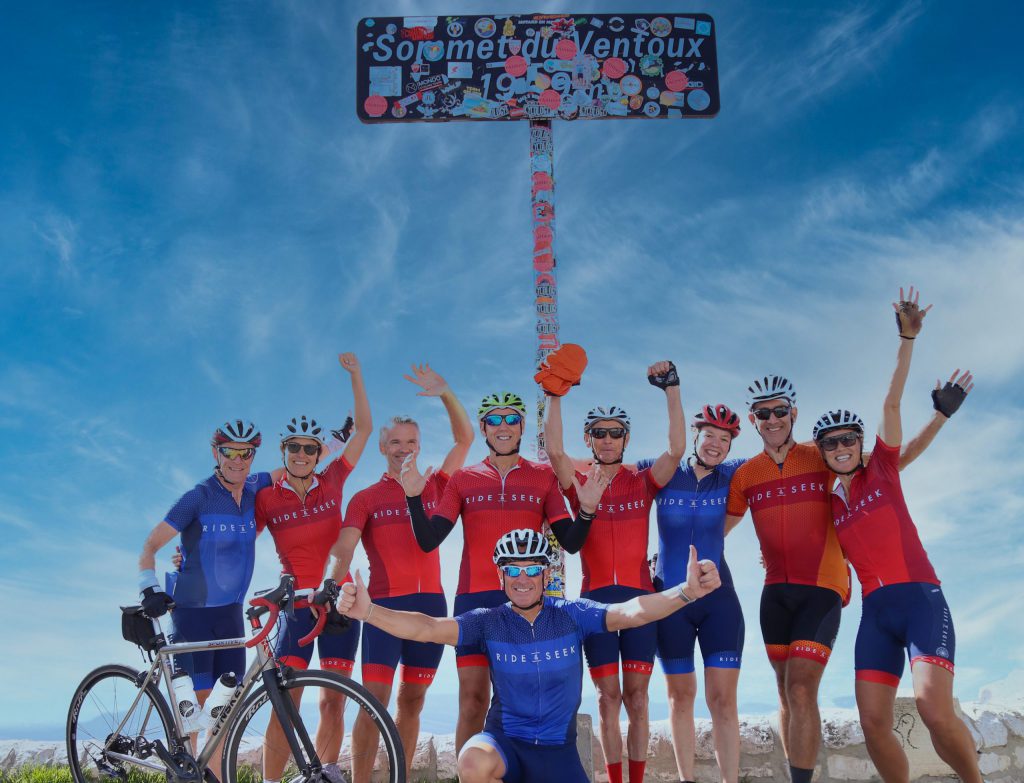
Deciding to take part in a Ride and Seek tour is a commitment to high adventure; it is also a commitment to yourself, other group members, and your friends and family. It will be a memorable adventure that will extend you in unexpected ways, giving you a real quality of life experience as well as a huge amount of fun. It is fair to say that the better prepared you are for your cycling adventure, the more you will enjoy the experience.
There is no set template for training but one principle will always hold sway. This relates to being consistent with your training. There is little long-term benefit from blitzing your training blocks and then having big breaks between the blitzes. Better to work off the premise of building up your fitness over a period of time through regular riding. In the context of our multi-day tours, we also recommend incorporating back-to-back days on the bike as part of your training as a way of replicating the flow of the tours themselves.

Proper preparation will give you more enjoyment, and a sense of achievement. Training is a big part of that preparation, but there are a few other things that are just as important. Tip number one is to negotiate with your stakeholders – family, and friends – and be open about what the trip means for you, and importantly, the time commitments involved in training prior to the event.
While we are talking about stakeholders, there is another consideration, safety, particularly when descending. I’m all in favour of enjoying the thrills of fast descents but you can have just as much fun at 80% of your maximum downhill speed as you can flat out. Descents around the world vary and are designed differently and it is easy to misjudge cornering speeds. Being a long way from home is also not the best place to let your downhill ego take control both on tour and training for one!
It’s worth thinking about the implications of being part of a group. Cycling can be a very solitary pastime but it is also a wonderful social activity. You will find that the interactions you have with the group will add a great deal to your enjoyment. A bit of give and take, mutual support both on and off the bike spread the happiness bugs and builds connections.

Science has rapidly advanced our understanding of training, however, you can train “scientifically” for your tour and still get it wrong. We need to be discerning and do the sort of training that is appropriate for our event, and that is quite possibly very different from how you might train at present. Employing a ‘coach’ with a clear understanding of how to use wattage as a guide can be invaluable.

Each tour requires the ability to ride consecutively for up to 6 days before a rest. If you choose the Hannibal tour you will also need the ability to ride tall mountains. If Napoleon is for you, then being comfortable on longer rides with the possibility of headwinds is what you train for. And if your preference is for a 2 cup tour on the lower difficulty spectrum you will still be looking to saddle up for multiple days in a row.
A couple of things may conspire to prevent you from doing the most appropriate training. One is the tyranny of Strava! Forget personal bests and being competitive with mates. Long and slow is the way to build the sort of endurance you need to flourish on these tours. One day of intensive work in your weekly or 10-day training cycle by all means, but no more. Most of us are time-poor and we compensate by going harder. When I train for these events I plan back-to-back days on the weekend riding with slower mates.
Being comfortable on the bike for extended periods is very important. Proper bike fit, good quality nicks, stretching and core strengthening work all pay big dividends. Recent saddle design changes have led to great improvement in comfort, particularly for women.
In a Nutshell

– Rest. This is when your body adapts to the training load and adjusts to handle higher workloads. Increasing training load without increasing rest leads to poorer performance. Plan a 4-week cycle of gradually increasing distance then have a week with 50% less riding. Increase distance in the next 4-week cycle.
– How to ride tall mountains when there are none nearby to train on? Find some long hills, about 3- 5 minutes of climbing. Climb in a very low gear, spinning as close to 100 rpm as you can. Descend, then repeat seated but using the biggest gear you can, cadence between 55 and 60. Gradually repeat the number of efforts. Every third effort, do it standing in a big gear.
– When you get to train in the mountains, start climbing in a relatively easy gear and spin. Towards the top, try and change to a harder gear and alternate standing and sitting. Break the climb into segments and focus on riding that segment well. Monitor and observe what is going on and focus. Match your breathing with pedal strokes. Relax the upper body and smile, it works!
– Remember to taper and not arrive at the start of your tour completely smashed. Also, don’t underestimate the effect of jetlag, it will affect your performance so arrive a couple of days prior to the event if you can. Get an aisle seat on the flight and walk/stretch often.